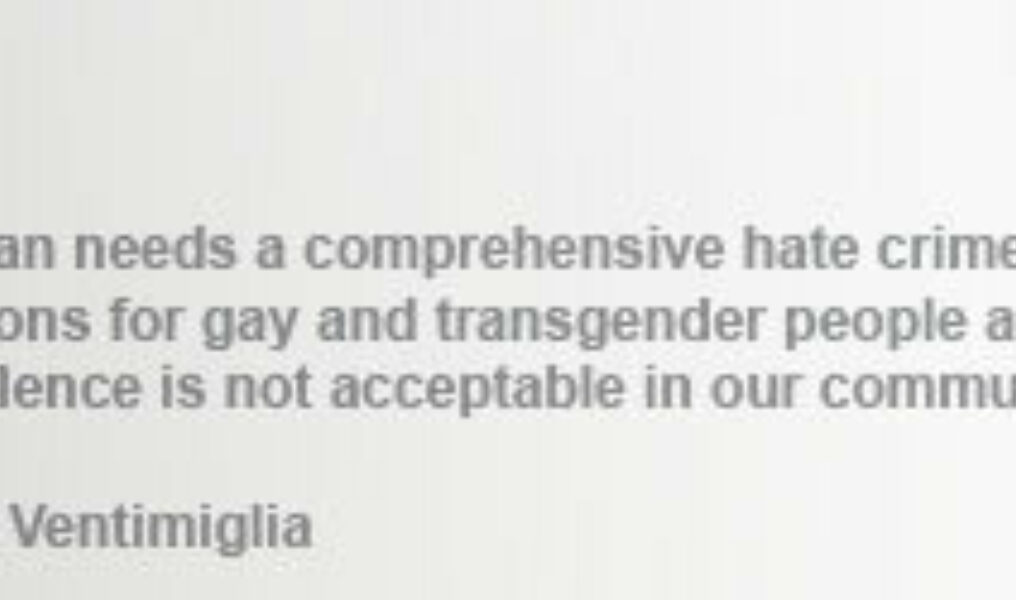By Nusrat Ventimiglia

Viewpoint
Last month, the Michigan Court of Appeals rejected one man's so-called "gay panic" defense. In Michigan v. Cutler the court agreed that a criminal defendant was not entitled to present his self-defense argument to the jury. Though the victim's story clearly shows Dale Cutler selected him because he is gay, Cutler was not charged with a hate crime. The reason: Michigan's hate crime law, known as the Ethnic Intimidation Act, does not recognize such crimes against gay and transgender people. The gay and transgender inclusive federal hate crimes law, the Shepard-Byrd amendment, was four months away from being signed into law. Thankfully the story is not entirely tragic – the victim survived, and his assailant was convicted despite attempts at presenting the "gay panic" defense.
When a judge or jury is presented with a claim of self-defense, the accused's conduct is compared with that of a fictional character – "the reasonable man." The reasonable man may defend himself against a threat of imminent death or serious bodily harm using the amount of force necessary to protect himself against that threat. Cutler is a trained cage fighter described as being a "good size guy," compared with the victim, who had a "thin build" at 130-140 pounds. According to the victim, Cutler delivered at least 30 blows to the head, leaving the victim in and out of consciousness in the hospital for days after the assault. In this case, it was the amount of force used that put Cutler's admitted actions into the realm of condemnable acts and a jury convicted him after 23 minutes of deliberation. Reason, in this case, prevailed. The "gay panic" defense, though, has prevailed in other cases, as in Steven Scarborough's voluntary manslaughter conviction for killing Victor Manious (who was beaten to death with a baseball bat).
Ironically, some cases in which a "gay panic" defense is used are in fact classic examples of hate crimes and the defense is an extension of that hate – grounded in a hope that latent anti-gay biases will replace reason as the jury's basis for a verdict. In such cases, a victim is selected because of his or her perceived identity as gay or transgender then subjected to brutal violence, characterized by "overkill" (multiple stabbings, blows or mutilation). In such cases, the presentation of a "gay panic" defense is utterly repugnant. This was true in the trial for Angie Zapata's murder (beaten to death with fists and a fire extinguisher) and in the trial for Matthew Shepard's murder (beaten while tied to a fence post and left for dead). Zapata's case was the first transgender murder tried as a hate crime and Shepard's case re-energized calls for an inclusive federal hate crime law.
Hate crimes legislation at the state level would accomplish much in such cases. It would ensure a fair judicial process in which such biases do not exonerate wrongdoers, but are seen as an implicating part of the violent crimes they motivated. It is the act, coupled with hateful intent, which should be criminal. Michigan v. Cutler represents a step forward in eliminating bias from the courtroom, but also exposes a gaping void in our state's law. This is a shortcoming that fails to hold violent criminals accountable to their victims and their victim's survivors. Hate-motivated crimes against those who are or are perceived to be gay or transgender are not recognized and punished as are other hate-motivated crimes. Michigan needs a comprehensive hate crimes law that includes protections for gay and transgender people and demonstrates that hate violence is not acceptable in our communities.










